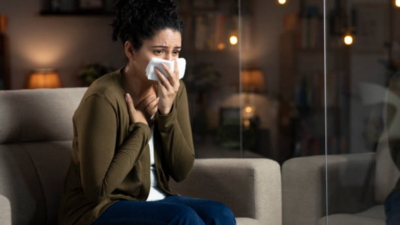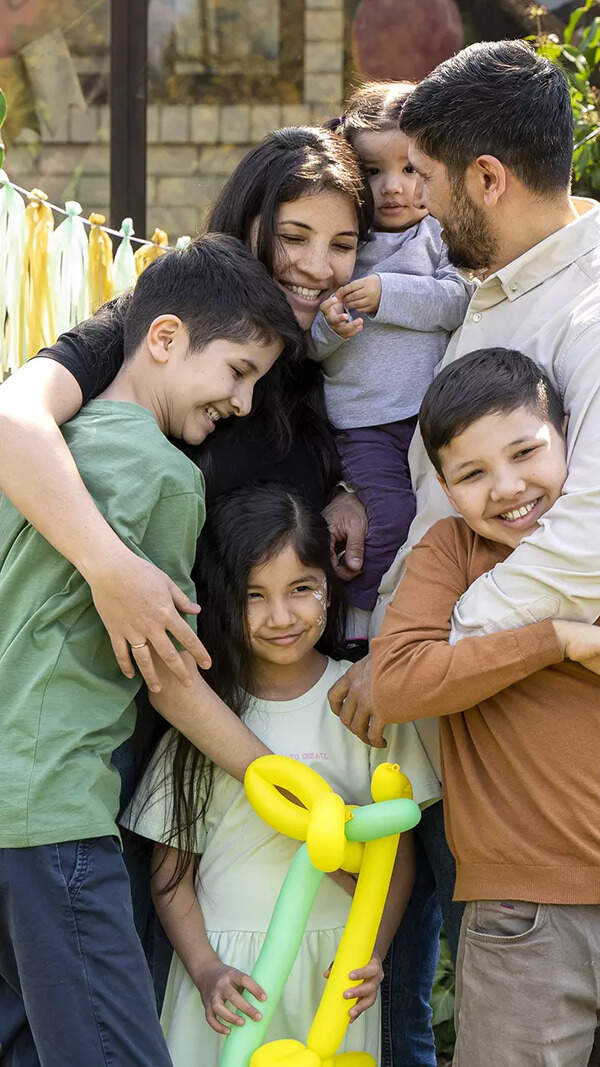- News
- lifestyle
- health-fitness
- health-news
- Expert shares symptoms of the new COVID variants, FLiRT and LB.1
Trending
Expert shares symptoms of the new COVID variants, FLiRT and LB.1
Dr. Xand van Tulleken highlights symptoms of new COVID variants FLiRT and LB.1, including fever, cough, and loss of taste. Mutations in these variants may affect transmission and vaccine efficacy. Public health measures like vaccination, mask-wearing, and hand hygiene are crucial to prevent spread.

Just when you thought that our bodies have become immune to COVID variants, due to vaccination and exposure to the ancestral variants of the coronavirus, you might be wrong. Few red flags of the new COVID variants have been discussed by Dr. Xand van Tulleken on BBC Morning Live and it is important to know them.
The expert has shared a list of symptoms and warning signs which should not be ignored and when seen one should immediately see a doctor.
Symptoms of COVID
Dr. Xand van Tulleken has listed several symptoms of new COVID variants, FLiRT and LB.1: fever, cough, fatigue, loss of taste or smell, sore throat, muscle or body aches, shortness of breath, headache and runny nose.
These symptoms can indicate a more severe case of COVID-19 and should not be ignored. Chest pain may be a sign of inflammation in the lungs, while difficulty breathing could be a result of the virus affecting the respiratory system. Coughing up blood is a serious symptom that may indicate damage to the lungs or airways, and swollen and painful neck could be a sign of inflammation in the lymph nodes.
It is important to seek medical attention if you experience any of these symptoms, especially if they are severe or persistent. Early detection and treatment can help prevent complications and improve outcomes for COVID-19 patients.
Experts recommend monitoring your symptoms closely and seeking medical advice if you are concerned about any changes in your health. Remember to follow public health guidelines, such as wearing masks, practicing social distancing, and washing your hands frequently, to reduce the risk of contracting and spreading the virus. Stay informed and stay safe.
The doctor suggests not ignoring the cough. "A cough is such a difficult symptom because everyone has had it. We all clear our throats all the time, we've all had coughs and colds that go away very routinely. And yet often in telly dramas and movies, a cough is seen as a precursor to something sinister, and so it can be a symptom that people worry about but don't really feel that they are entitled to go to the GP," he said on the show.
Concerns around FLiRT and LB.1 is rising
Mutations of the Omicron sub variants are increasing. Two variants FLiRT and LB.1 are spreading faster, especially in the US.
These variants, like others before them, possess unique mutations that can potentially impact transmission rates, severity of illness, and effectiveness of vaccines. FLiRT, for instance, has been closely monitored due to mutations in its spike protein, which could potentially affect how easily it spreads or evades immune responses.
As per the data released by the US CDC, by early June FLiRT strains were responsible for over 60% of COVID cases.
As these variants continue to evolve and spread, there is a heightened urgency for robust surveillance, genomic sequencing, and public health measures to monitor their spread and adapt strategies accordingly.
How to stay safe?
Additionally, maintaining physical distance from others, particularly in crowded places, can help reduce the spread of the virus. Avoid close contact with individuals who are sick or showing symptoms of COVID-19. Stay informed about the latest guidelines and recommendations from health authorities to ensure you are following the most up-to-date information.
It's important to remember that even if you are fully vaccinated, it's still possible to contract and spread the virus to others. By adhering to these preventive measures, you not only protect yourself but also contribute to the collective effort in preventing the further spread of COVID-19 in your community.
Stay vigilant and continue to prioritize these precautions to safeguard your health and the well-being of those around you. Together, we can work towards overcoming the challenges posed by the pandemic and strive for a safer and healthier future.
Monitor your health regularly and get tested if you experience symptoms of COVID-19 or have been in close contact with someone who tested positive. By taking these steps, you can help protect yourself from COVID.
The expert has shared a list of symptoms and warning signs which should not be ignored and when seen one should immediately see a doctor.

Symptoms of COVID
These symptoms can indicate a more severe case of COVID-19 and should not be ignored. Chest pain may be a sign of inflammation in the lungs, while difficulty breathing could be a result of the virus affecting the respiratory system. Coughing up blood is a serious symptom that may indicate damage to the lungs or airways, and swollen and painful neck could be a sign of inflammation in the lymph nodes.
It is important to seek medical attention if you experience any of these symptoms, especially if they are severe or persistent. Early detection and treatment can help prevent complications and improve outcomes for COVID-19 patients.
Experts recommend monitoring your symptoms closely and seeking medical advice if you are concerned about any changes in your health. Remember to follow public health guidelines, such as wearing masks, practicing social distancing, and washing your hands frequently, to reduce the risk of contracting and spreading the virus. Stay informed and stay safe.
The doctor suggests not ignoring the cough. "A cough is such a difficult symptom because everyone has had it. We all clear our throats all the time, we've all had coughs and colds that go away very routinely. And yet often in telly dramas and movies, a cough is seen as a precursor to something sinister, and so it can be a symptom that people worry about but don't really feel that they are entitled to go to the GP," he said on the show.
Concerns around FLiRT and LB.1 is rising
These variants, like others before them, possess unique mutations that can potentially impact transmission rates, severity of illness, and effectiveness of vaccines. FLiRT, for instance, has been closely monitored due to mutations in its spike protein, which could potentially affect how easily it spreads or evades immune responses.
Dengue: Early signs and preventive measures to stay safe
As per the data released by the US CDC, by early June FLiRT strains were responsible for over 60% of COVID cases.
As these variants continue to evolve and spread, there is a heightened urgency for robust surveillance, genomic sequencing, and public health measures to monitor their spread and adapt strategies accordingly.
How to stay safe?
It's important to remember that even if you are fully vaccinated, it's still possible to contract and spread the virus to others. By adhering to these preventive measures, you not only protect yourself but also contribute to the collective effort in preventing the further spread of COVID-19 in your community.
Stay vigilant and continue to prioritize these precautions to safeguard your health and the well-being of those around you. Together, we can work towards overcoming the challenges posed by the pandemic and strive for a safer and healthier future.
Monitor your health regularly and get tested if you experience symptoms of COVID-19 or have been in close contact with someone who tested positive. By taking these steps, you can help protect yourself from COVID.
End of Article
FOLLOW US ON SOCIAL MEDIA









